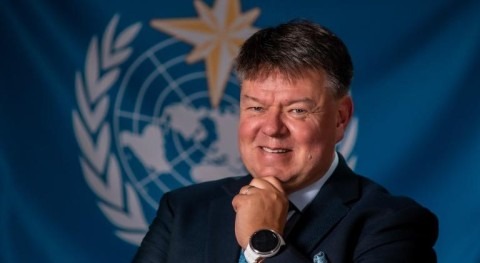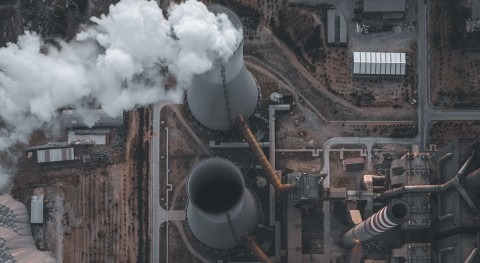The COVID-19 pandemic has exacerbated impacts of extreme weather and climate change in vulnerable countries but also highlighted the need to build resilience against a multitude of hazards through better early warnings and risk information.
This is one of the key messages of the 2020 Annual Report of the Climate Risk and Early Warning Systems Initiative (CREWS), a unique climate action programme that helps saves lives, livelihoods and assets in the world’s most vulnerable countries.
The report “Progress on Early Warning in a Pandemic” showcased achievements in improved early warnings for flash floods, tropical cyclones, sand and dust storms and drought, as well as better weather forecasts for farmers in Least Developed Countries (LDCs) and Small Island Developing States (SIDS).
The report was presented by Stéphane Crouzat, France’s Climate Change Ambassador at the Wilton Park dialogue: Risk-informed Early Action Partnership: from commitment to action
“It is exciting that initiatives launched as part of the climate action agenda alongside the Paris Climate Change Agreement, in 2015, are demonstrating that they are effective vehicles for ramped-up action. CREWS is working, through its operational partners, in 9 country and 4 regional projects, covering 57 countries in total.”
The report outlines the cooperative actions taken by the World Meteorological Organization, The World Bank / Global Facility for Disaster Reduction and Recovery (GFDRR) and the UN Office for Disaster Risk Reduction (UNDRR), which are Implementing Partners of the CREWS Initiative. With the direct support of contributing Members of the CREWS Trust Fund, the partnership is an effective alliance that continually delivers on making a difference to people’s lives and livelihoods.
To date, the CREWS Trust Fund has received over US$ 66 million in project funding – with an increase of 21% in 2020 - and mobilized an additional US$ 330 million from public funds of other development partners. It needs an additional US$107 to meet funding needs for the next five years – investments which will reap dividends and support the global agenda on sustainable development, disaster risk reduction and climate change adaptation.
There is no doubt that COVID-19 affected CREWS projects globally in the timing and progress of activities and the mode of their delivery. National institutions’ capacities to operate as normal were hampered, while travel restrictions affected abilities of both national and international partners to provide services.
Through this work, many millions of people in some of the world’s most vulnerable communities now have access to better early warning services.
- In Afghanistan, a blueprint has been developed by national authorities to modernize national hydro-met operations and strengthen capacity on multi-hazard early warning services, including for flash floods and drought, for 38 million people. 3D printers are being used to build automatic weather stations in to rural communities.
- In Burkina Faso, a daily sand and dust storm bulletin is disseminated, mitigating the impact on health, agriculture and transport in one of the world’s most affected countries. Farmers have been trained to use climate information and weather forecasts, resulting in lower production costs, higher yields and 265% income increase compared to non-pilot farmers, with money used for education, health care and enterprise.
- In Chad and the Democratic Republic of Congo, CREWS is building national capacity to deliver community-centred warning services for climate, water and weather extremes.
- In Mali and Niger, community leaders – with a special focus on women - have been trained on climate risks and early warning on floods, thunderstorms and drought.
- In Togo, hydro-met services and civil protection agencies have improved cooperation between them by jointly assessing the processes involved in weather and climate forecasting, flood warning.
- In Papua New Guinea, the national meteorological and hydrological service is able to deliver timely and more accurate climate and weather information to people and better protect them from drought, floods and coastal inundations.
.jpg)
Across the Caribbean, nearly 30 million people are set to benefit from 3 pilot activities, including developing an operational blueprint for hydro-met hazards and transitioning to impact-based forecasting on what the weather will DO rather than simply what it will BE. There is growing recognition that effective early warning and climate services in delivering multiple global and national goals.
Thanks to a regional-level project in the Pacific, early warning systems for hazards like flash floods have been strengthened in a disaster-prone region which is particularly vulnerable to climate change and sea-level rise. Seasonal climate outlooks have provided actionable advance information for climate sensitive sectors.
In West Africa, CREWS is strengthening capacities for sustainable regional climate early warning and piloting local warning services in Sierra Leone.
CREWS members are Australia, Finland, France, Germany, Luxembourg, the Netherlands, Switzerland and the United Kingdom. Canada is also supporting CREWS projects. Finland joined the initiative in 2020.

















